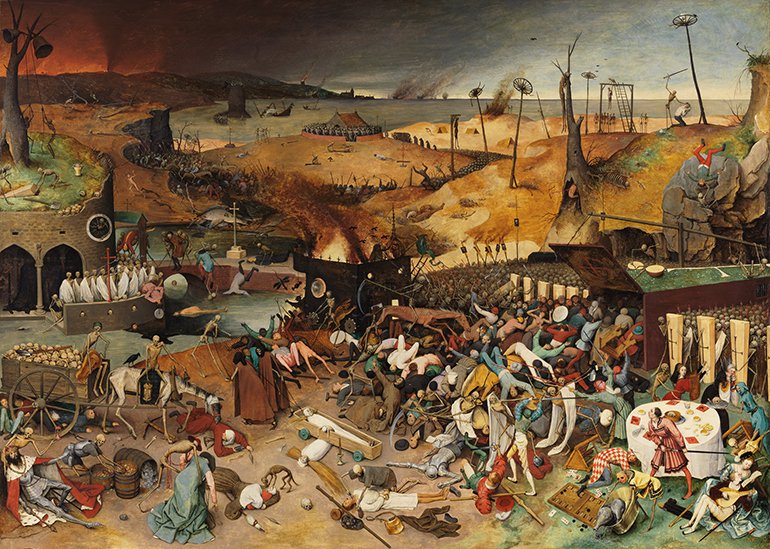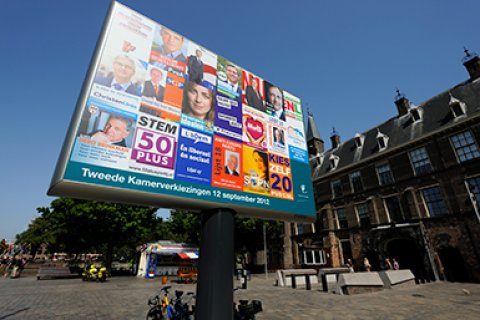Market dominance and inequality make societies more vulnerable to natural disasters
Bas van Bavel's contribution to the 2019 Human Development Report

Market economies not only lead to material inequalities, they also make societies more vulnerable to natural disasters. This is what economic historian Professor Bas van Bavel claims in the recently published 2019 United Nations Human Development Report, which focuses on global inequality.
The 2019 Human Development Report, entitled 'Beyond Income, Beyond Averages, Beyond Today', looks beyond the dominant discourse on income disparities and also takes into account inequalities in other dimensions, such as health, education, access to technologies and exposure to economic and climate-related shocks. In the report, economic historian Van Bavel discusses the impact of market dominance on inequality and environmental disasters.
Long-term historical perspective
Van Bavel has already shown that market dominance hinders the growth in prosperity in the longer term: new economic elites use their wealth to gain political and legal power and exclude newcomers, resulting in an increase in inequality and a decline in investments. This was the case during the heyday of Arab culture in Iraq, in Italian cities during the Renaissance and in the Golden Age of Antwerp and Amsterdam. Not only does this process inhibit growth, says Van Bavel in the report, it also leads to ecological problems, as a long-term historical perspective shows.


Before the market economy
In these societies, prosperity and political power were relatively evenly distributed before the emergence of the market economy. Organisations, guilds, cooperatives and associations were powerful, and people had equal access to the market and were able to benefit from market exchange. These organisations took long-term safety and sustainability into account. The owner of the land and resources was often the same person who exploited them. This is no longer the case with market dominance. Van Bavel: 'This entails a risk: in a market economy, the owners of land, capital and natural resources are often far removed from those adversely affected by their exploitation. They also experience fewer restrictions on exploitation than in the previous situation, in which ownership rights were often more broadly distributed.'
In their later downward phases, historical market economies all faced serious ecological problems, from the salinisation and collapse of essential irrigation systems in medieval Iraq to the increasing floods and famine in Renaissance Italy.
Battle against high water levels
Van Bavel also cites an analysis he carried out with two colleagues, of three parts of the Low Countries (the coast of Flanders, the Dutch river region and Groningen) where the market prevailed in the fight against high water levels for a long time. Increasing material inequality always came with a serious increase in ecological problems. These problems did not result directly from inequality, but through the negative impact of inequality on the organisation of water management.
Equality leads to better disaster prevention
Greater wealth disparity and a higher concentration of power increase the risk of ecological disasters.
Economic and political equality increases the chances of institutions adapting to circumstances and working towards sustainability and shock resistance. 'When both ownership and decision-making rights were broadly distributed, the chances were greatest that water management institutions would be adapted to changing circumstances to reduce the risk of a flood disaster. However, when wealthy actors controlled the ownership of key resources and had the decision-making powers, they protected their specific interests even though this actually made society less able to cope with the risk of flooding,' says Van Bavel. Greater wealth disparity and a higher concentration of power increase the risk of ecological disasters.
Lessons from the past

All these historical cases can teach us lessons for the present. 'Even in parliamentary democracies, economic wealth today seems to translate into political influence – through lobbying, campaign funding and the ownership of media and information – and wealthy individuals can easily escape environmental risks. Our research shows that these developments are not anomalous or coincidental. Perhaps we need to think more deeply about a range of policies to curb the concentration of economic and political power. The concentration of economic power (wealth), the first phase, is easiest to control. But after the establishment of economic power and its transformation into political dominance, this is much more difficult to achieve', concludes Van Bavel.
Professor Bas van Bavel’s work brings new ideas about the long-term relationship between inequality and development, through innovative and multidisciplinary research. His thought-provoking work links the tensions coming from inequality with societies’ ability to face new challenges. All this illuminated by a new look at historical data.

